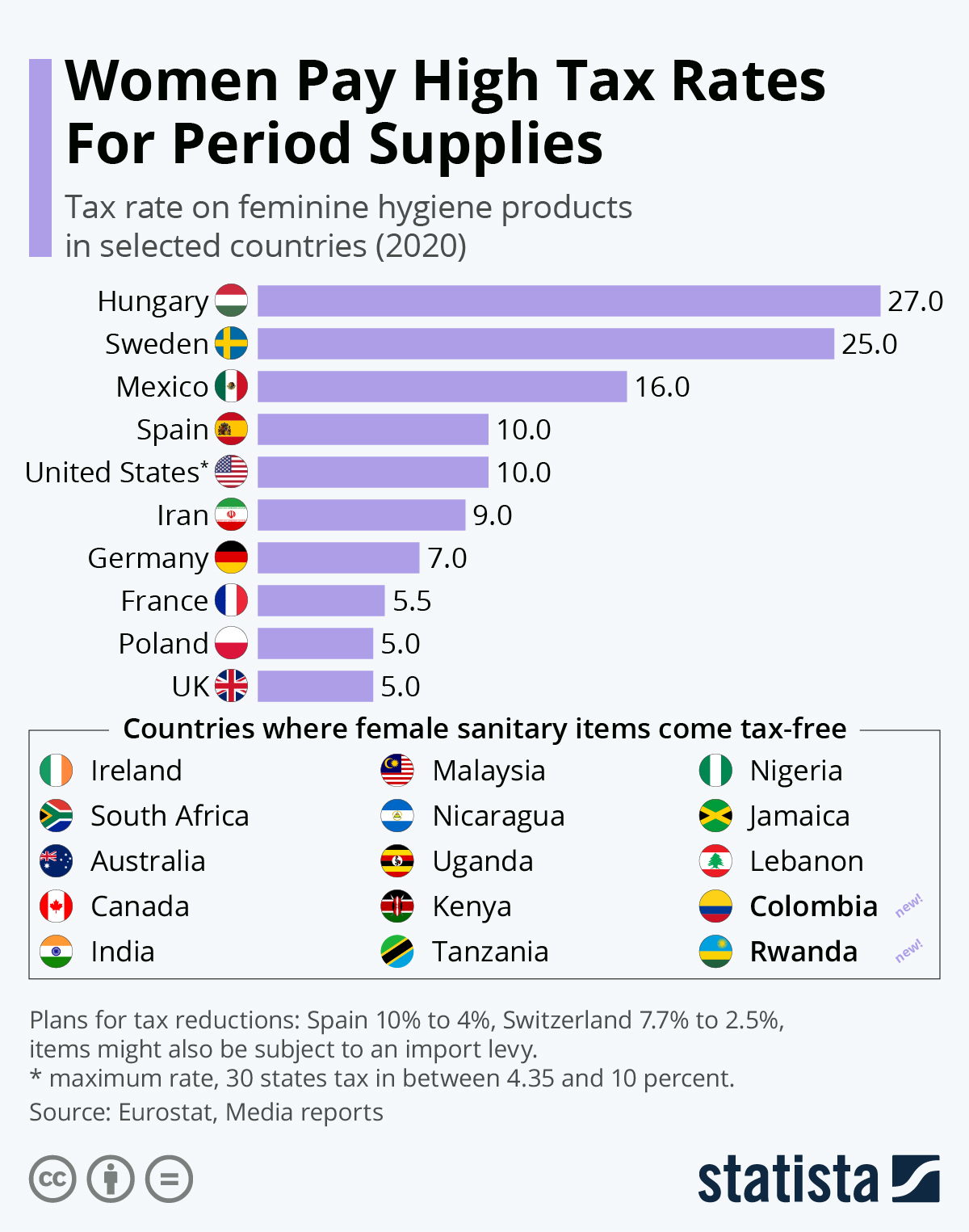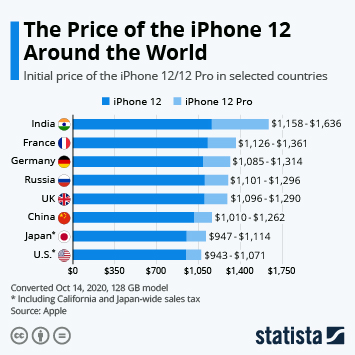Around the world, feminine hygiene products are taxed at rates higher than expected for essential items. Pads and tampons are often included in standard sales tax brackets even though lower ones might arguably be more appropriate. In some countries, period supplies are even declared luxuries items before the law and are taxed at rates also applied to items like cigarettes or alcohol.
Despite EU legislation allowing members to apply super discounted tax rates to feminine hygiene products, only some European countries have changed their laws. The UK, France and Cyprus had taxes of around 5 percent for period supplies by 2018. In the last 12 months, Lithuania, Poland and the Czech Republic have joined them in applying that rate. Germany also slashed its tax to 7 percent (previously 19 percent) and Luxembourg even went as low as 3 percent.
Ireland, Australia, South Africa, Canada, India and several other nations have recently abolished all sales tax on sanitary napkins and tampons. The decisions garnered praise, but also commentary that sales tax is routinely collected on essential items (think bread or rice) and that a minimum rate should still apply. In the last 12 months, Colombia and Rwanda also removed any sales tax on period supplies.
In India and other developing nations, the lack of sales tax does not necessarily translate into sanitary products being affordable to a large portion of the population. In many nations, high import levies pose additional barriers to affordability if no good nationally made products exists. Activist have pointed out that programs that give out free products to women in need would be more effective and could be funded by a (small) sales tax payed by those who can afford to shop for the products.















